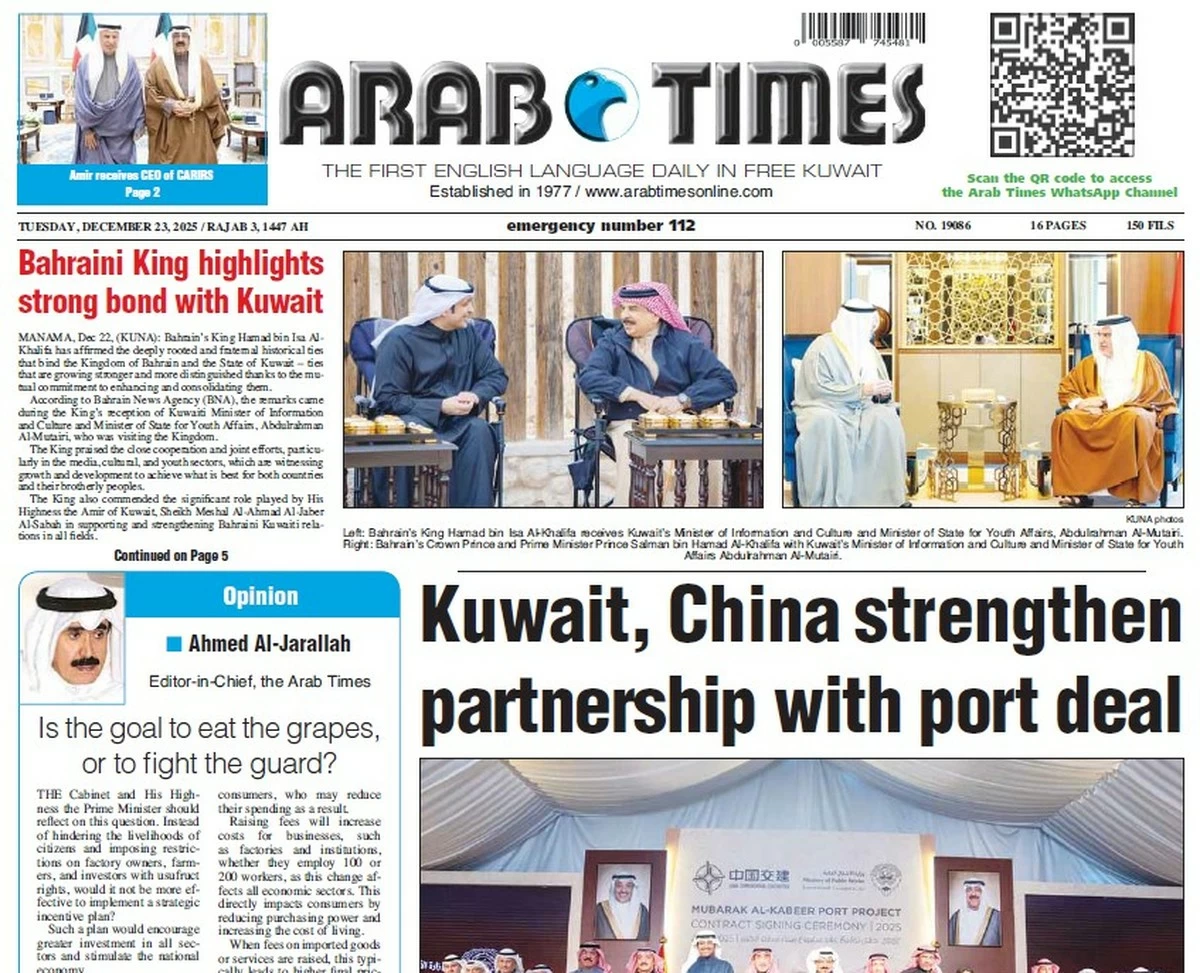29/12/2024
29/12/2024
SINCE the year 1613, Kuwait has been a blessed land, as its people and rulers have long proclaimed. For centuries, it has been a sanctuary for those seeking peace and tranquility, which is why it attracted people from all over the world. Throughout those centuries, Kuwait faced crises, challenges, and epidemics, yet it has always triumphed, thanks to the unity and solidarity of its people. Even during times of poverty when the country relied on the sea and its resources, the people never questioned the origins of others. They believed in the importance of living in a tolerant society. Security and stability were their top priorities.
Therefore, all those who came to this blessed land found tolerant rulers who did no wrong. It is this spirit of justice and fairness that enabled the people to overcome all challenges, along with the unity enhanced by the wisdom of their leaders and the harmony shared by all families in the country. As a result, the invasions, challenges, and attempts to erase Kuwait’s identity throughout its history have never weakened its people. Even during the Iraqi invasion, Kuwaitis resisted with simple tools initially and displayed remarkable heroism in the face of adversity. No citizen was ever questioned about their origin, class, sect, family, or nationality. For this reason, the people of Kuwait were able to overcome all difficulties.
They were united by their belief that no one could differentiate between their people and their rulers. In times of adversity, you always see them standing together with the firm conviction that Kuwait is their constant and eternal homeland. In light of this history, and the financial prosperity that God has blessed it with, Kuwait, despite its relatively small geographical size, has the potential to accommodate over 15 million people. Through prudent financial and administrative management, this population could contribute to the growth of projects, industries, and food security.
This population can strengthen society through its cultural diversity, as was evident before the invasion and even until a few years ago. During that time, Kuwait became a cultural hub for the Arab world, surpassing several Arab capitals. Therefore, it would not be detrimental for the number of residents or naturalized citizens to exceed the number of Kuwaiti nationals.
Countries like Saudi Arabia, the UAE, and Qatar have benefited from this dynamic, as they turned their diverse populations into valuable assets that have enriched their economies and societies. These countries did not concern themselves with whether the number of residents or naturalized citizens exceeded the number of original citizens, as their primary focus is on maximizing their national output.
This is exactly what Kuwait needs at this stage when nations compete to build economic and cultural soft power for the benefit of their people. Kuwait’s rulers and elites have always affirmed that blessings should benefit everyone, unlike isolation and societal discord, which can weaken even the strongest of nations. In many countries, a person’s origins are not as important as their contributions to society.
Once an individual obtains citizenship, they are considered a full citizen and they serve the state. Thus, there is no distinction between the nationality of one citizen and another; the only measure is adherence to the law. We have witnessed this in Kuwait, and it is clear that such inclusivity positively impacts societal stability, the economy, and, most importantly, national loyalty, which is the foundation of strong societies and nations.
However, this does not excuse those who engage in forgery or hold dual nationalities from being held accountable, as it is a violation of the law. Anyone who fails to adhere to the law must be held responsible to prevent confusion and chaos. The most important factor, however, is the conviction that Kuwait can overcome its economic and social challenges, and continue to thrive as a blessed and influential nation within its regional and Arab context. Achieving this requires sound and prudent economic and social management, one that recognizes what benefits its people and enhances the added value of the nation, ensuring it is not squandered.
Ahmed Al-Jarallah
Editor-in-Chief, the Arab Times



